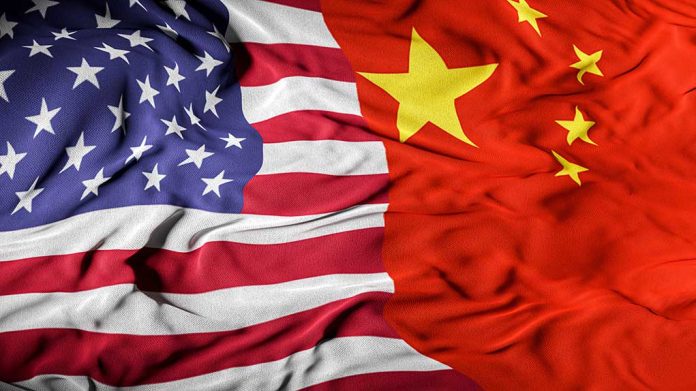
Trump administration officials head to Switzerland for critical trade talks with China as U.S. tariffs reach a staggering 145% amid the ongoing economic standoff.
Key Takeaways
- Treasury Secretary Scott Bessent and U.S. Trade Representative Jamieson Greer will meet with Chinese Vice Premier He Lifeng in Switzerland this weekend to potentially resolve the escalating trade war.
- Trump recently increased tariffs on Chinese imports to 145% while China has retaliated with tariffs up to 84% on American products, creating economic strain on both sides.
- Stock futures rose sharply following the announcement of the meetings, indicating market optimism about possible resolution.
- The talks represent the first major engagement between the countries since the tariff escalation, with Treasury Secretary Bessent emphasizing “shared interests” and the “unsustainable” nature of the current situation.
- Both economic and national security concerns are driving the U.S. approach, with Trump stating China is interested in negotiating but preferring America dictate terms.
First High-Level Meeting Since Tariff Escalation
Top officials from the Trump administration will meet with Chinese counterparts this weekend in Switzerland, marking the first formal trade discussions since President Trump intensified the economic conflict with unprecedented tariff hikes. Treasury Secretary Scott Bessent and U.S. Trade Representative Jamieson Greer will lead the American delegation in discussions with Chinese Vice Premier He Lifeng. The high-stakes meetings are scheduled for Saturday and Sunday in Geneva, where both delegations are also expected to meet with Swiss President Karin Keller-Sutter during their stay. This represents a potential breakthrough after weeks of economic tension.
The meeting announcement comes amid growing concerns about economic damage on both sides. American businesses face rising costs and supply chain disruptions, while Chinese exports to the U.S. have reportedly plunged. Both Bessent and Greer have prior experience with Chinese officials before the current trade conflict intensified, potentially providing some foundation for productive discussions. The timing suggests mounting pressure may be pushing both economic powers toward finding a resolution path despite the tough rhetoric from both capitals.
BREAKING: Treasury Secretary Scott Bessent says he will be meeting with Chinese officials in Switzerland to begin trade talks with China.
Bessent went on Fox News to break the news.
"The world has been coming to the U.S. and China has been the missing piece. I was going to be… pic.twitter.com/4SpPTNRayx
— Collin Rugg (@CollinRugg) May 6, 2025
Escalating Tariffs Creating Economic Pressure
The current trade situation has reached unprecedented levels of tension with American tariffs on Chinese imports climbing to 145% under President Trump’s directive. This stands in stark contrast to Trump’s simultaneous reduction of tariffs on other U.S. trading partners, highlighting the targeted approach toward China. Beijing has responded with its own retaliatory measures, implementing tariffs as high as 84% on American products. The escalating trade barriers have created significant disruptions for manufacturers, retailers, and consumers caught in the crossfire of what Treasury Secretary Bessent has characterized as a situation that “isn’t sustainable.”
Financial markets have responded positively to the mere announcement of talks, with stock futures rising sharply as investors search for signs that the economic standoff might be resolved. The tariff strategy, while designed to boost American manufacturing, has faced criticism for potentially weakening U.S. growth prospects. However, administration officials maintain that the aggressive approach has successfully brought China to the negotiating table, with President Trump claiming China’s willingness to discuss terms while emphasizing America should dictate the parameters of any potential deal.
National Security Concerns Drive American Position
Treasury Secretary Bessent has framed the trade discussions within a broader context of security concerns, explicitly connecting economic and national security interests. His comments indicate the administration views these talks as an opportunity to rebalance the international economic system in favor of American priorities. Bessent reportedly plans to address concerns about intellectual property protection, market access, and trade imbalances that have long been points of contention between Washington and Beijing. The administration appears focused on securing concrete commitments from China rather than simply reducing tensions.
U.S. Trade Representative Greer has stressed that the goal is to “fix the American economy, not to encircle China,” attempting to frame the talks in economic rather than geopolitical terms. This approach may provide space for both sides to compromise on specific trade issues while maintaining their broader strategic positions. The Chinese Commerce Ministry confirmed the upcoming meetings after “evaluating U.S. information and considering global expectations,” suggesting Beijing also recognizes the importance of finding some path toward de-escalation, even if substantial differences remain on fundamental issues that triggered the trade conflict.
Sources:
US, China to hold ice-breaker trade talks in Geneva on Saturday
Trump officials Bessent and Greer to meet with Chinese counterparts on trade, economic issues
Trump Officials Set First Meeting with China Amid Tariff War



